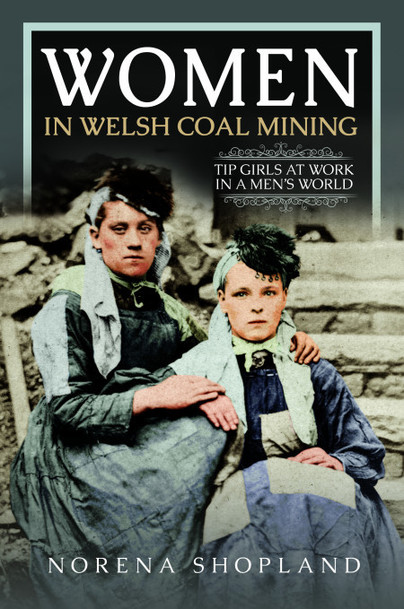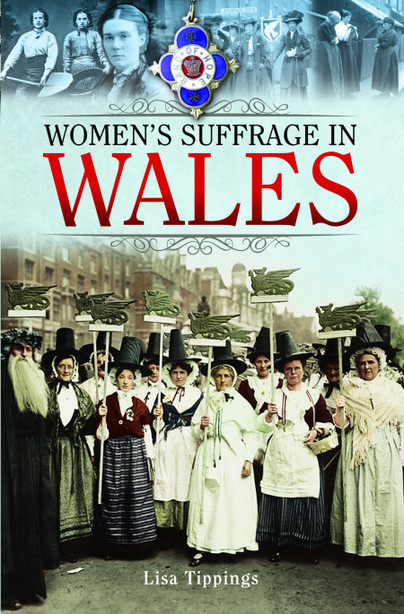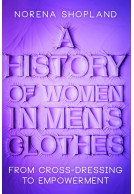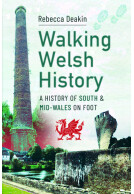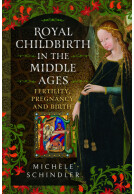Women in Welsh Coal Mining (Hardback)
Tip Girls at Work in a Men’s World
Imprint: Pen & Sword History
Pages: 208
Illustrations: 25 mono
ISBN: 9781399075220
Published: 5th May 2023
(click here for international delivery rates)
Order within the next 1 hour, 41 minutes to get your order processed the next working day!
Need a currency converter? Check XE.com for live rates
| Other formats available - Buy the Hardback and get the eBook for £1.99! | Price |
|---|---|
| Women in Welsh Coal Mining eBook (18.9 MB) Add to Basket | £6.99 |
We tend to think of coal mining as predominantly a male occupation, with women confined to roles as wives and support workers. Women worked at the coal face for many years before they were banned in 1842. However, mere legislation was not going to stop them - many continued to work underground, with mine owners making little attempt to stop them due to the low wages paid to women. Some would dress and pass as men to fool visiting inspectors. For the majority though, they worked on the pit brow where they received the coal, cleaned, sorted and cut it to uniform size. Dirty, laborious work, including many accidents and deaths, done by women and girls, some as young as 10 years old.
Society was appalled, and harshly criticised women (but not men) for working in such environments and so close to male workers. Find a respectable job, like domestic service, they were told - despite the fact that few jobs for women were available in such industrialised areas. Like the more famous Pit Brow Lasses of Lancashire, the Tip Girls were castigated for having ‘unsexed’ themselves, accused of immorality, of being unfit wives and mothers and society went on a mission to save them. But the Tip Girls did not want to be saved.
For nearly a hundred years, these women fought society and Parliament to keep their jobs and clear their reputations. Norena Shopland tells their story for the first time. New research from census returns and newspaper accounts have uncovered over 1,500 named women who worked in the Welsh coalfields – only a few could be included in this book - but it shows how much more work is needed in order for us to continue to celebrate these remarkable women.
With the intent to highlight this mostly forgotten part of history, Norena Shopland documents the depth of involvement women had in Welsh coal mining. The book focuses on the experience from a woman’s perspective: what drove them to the work, the hardship they suffered, the horrendous treatment they endured and how hard they fought to be able to keep working. It is a microcosm of the struggle women have fought and continue to fight to be seen as equals and valid members of the workplace.
NetGalley, Kelly Hodgkins
The work was hard but at no point did the men say the women failed to do and do it well. The book is full to the brim with facts and studies, first hand accounts and intense stories. It is heartbreaking a stark reminder of how much is still to fight for in women’s rights.
The author includes the following in the final chapter:
“In 2021 a study was done by Natural Resource Governance Institute (NRGI) and World Resources Institute (WRI) on women working in extractives, those industries extracting raw materials from the earth, and found that 60 countries still have laws on the books that restrict women’s employment in mining, mostly in the sub-Saharan Africa areas. Most of these laws originated from the British Mines and Collieries Act of 1842 that banned women and girls from working underground which spread across the British Empire and elsewhere.”
If women’s rights, history or the combination of the two interest you, this is a great book to read. Its a four out five on the enJOYment scale.
Article: The story of the Welsh 'tip girls' who worked down in the mines
Western Mail (Cardiff)
A book chock-full of facts about the brave women and girls who worked in coal mines in Wales. Absolutely fascinating but at the same time I just wanted to rush in there and save them all, especially the little children who worked so hard and were being put in such danger.
NetGalley, Monica Mac
So many women doing such tough and dirty labour. A lot of them had absolutely no choice. When the men in government in London were rabbiting on about women who should be at home looking after their men or be in domestic service, they were completely forgetting the fact that these women HAD to work, quite often because their menfolk had actually died during mining accidents or from contracting miners lung etc. There was no welfare to speak of and even the women who did get jobs in mines were paid less than their male counterparts. There were women who were widows, women who had no brothers in their families, single women and just women who wanted the right to work in exchange for a fair wage. Any number of reasons they were working in the coal mines and all of them valid.
As much as I was horrified at some of the conditions these women worked under and glad about how far we have come in the intervening years in making sure that women's rights in the workforce are protected, I also realised that we are STILL lagging behind when it comes to wages. And women who work in "male" occupations are still a minority and still face a lot of the same challenges as women a hundred or more years ago.
I loved that the women personalised their hats in the way they did, to show their individuality.
This was a well-researched book and there clearly was enough material for several more books.
4.5 stars from me.
Rating: 5 out of 5 stars
NetGalley, Aubrey Kerr
If your family has a history in Wales this is a great collection of information about the families that were Coal Miners, particularly the women and children. A great way to learn more about the trade.
Rating: 5 out of 5 stars
NetGalley, Aubrey Kerr
If your family has a history in Wales this is a great collection of information about the families that were Coal Miners, particularly the women and children. A great way to learn more about the trade.
Norena Shopland’s book, Women in Welsh Coal Mining, probably has more facts per page than any other history text I’ve read – and that’s not a complaint!
NetGalley, Colin Edwards
Shopland takes us through the period from the late eighteenth century to the early twentieth when women (and children too, for they are part of the narrative – even some who were carried to work because it was too far for the little tots to walk) were employed in the mining industry. Be aware: this book is an uncomfortable read. The work was dirty; it was poorly-paid; and it was highly dangerous. Shopland quotes many accounts of women being killed by wagons; by ropes giving way; and other nasty means – almost always because the employer didn’t feel any duty of care. In 1820, Elizabeth Pendry (age 6) and Annie Tonks (12) died in a pit explosion.
Indeed, the narrative is often downright depressing: Parliament et al pontificate about the immorality of women working alongside men in such circumstances. The MPs and others say that it brutalises the women so that they are unfit to be mothers. These women ought to be at home, learning how to manage a household; keep the house clean; and look after a husband and children. However, as Shopland points out:
- How many men actually asked the pit women what they wanted?
- How were those households supposed to manage without the women’s (and children’s) income?
- Why should doing a dirty dangerous job automatically make the women immoral?
- If the job was unfit for women because it was dangerous / dirty / etc., then why was it fit for men?
I did sense an echo of modern Saudi Arabia’s arguments for separating women and men and generally subjugating women.
Shopland does an excellent job of articulating the women’s view. In one discussion between a male writer and a young pit woman about why she was working at the pit rather than as a servant in a household, she told him “we are free after five o’clock, man!” These women worked long, but fairly fixed hours, doing a specific job and exchanging their labour for a wage. Domestic servants could be made to work all hours; lived on the premises; and were reliant upon the employer for food and lodgings – they had no time to call their own, really.
The author’s mastery of many sources - census records; newspapers; Parliamentary records; pictures; books – is humbling. I’m studying for an MA in a fairly niche branch of history and I am green with envy at the way she dexterously teases out the stories from these archival sources.
Rating: 5 out of 5 stars
NetGalley, Lily Amidon
In Women in Welsh Coal Mining, Norena Shopland explores the women who occupied jobs in or around coal mining communities in Wales and the larger United Kingdom. One of the few works on the topic, Shopland examines and analyzes census records and other government documents to uncover the true number of women employed in such fields, even when the government sought to ban women from these positions. Highlighting the massive role that Welsh women played in the coal mining sector of the nineteenth century economy, Shopland fills this book with massive amounts of detail, personal narratives, and statistics as she finds them. Shopland’s commitment to identifying these women and telling their stories is admirable, as is the work and time that Shopland puts into finding and analyzing these records. Well-written and comprehensive, Shopland also explores the tangential tasks that Welsh women filled in coal mining communities and highlights the youth and hard work of many of these women. Shopland’s commitment to the historical and sociological processes of research and analysis as well as to faithfully and holistically identify these women is especially admirable, and her book on women in Welsh coal mining is a fantastic read about women working in a sector of the economy that does not make it into the larger narrative.
Rating: 5 out of 5 stars
NetGalley, Anita Wallas
This book is absolutely packed with facts and detail and provides a truly astonishing insight into the role of women in the mining industry. As usual, women were marginalised. They played an important role in the mining process but their stories are rarely told and their voices are unheard. In Rena Shopland’s meticulously researched account, the hardships experienced are heartbreaking. They endured long hours in appalling conditions for little money. It’s taken enormous effort to collate detail of the numbers and locations from numerous historic records.
This account is academic and likely to prove a valuable resource for further research. It goes a long way to redressing the imbalance of historic accounts which, in my experience, never mention the critical role of women. Fascinating reading.
Rating: 5 out of 5 stars
NetGalley, Brenda Carleton
Women in Welsh Coal Mining is equal parts grim, enlightening and fascinating and exposes the horrific conditions in which women and children slaved for a pittance. Though technically banned in 1842, both employee and employer often disregarded regulations.
Women worked in deplorable conditions and were chastised for working with men and like men, often 12-18 hours a day with only Sundays off. Work was grueling in darkness with chances of physical, mental and sexual assault as well as risk of death from falls and getting crushed. The girdle and chain job is unfathomable. Not only that but young girls as young as worked as doorkeepers, some so small they had to be carried to and from work. The book includes diary entries from women and girls regarding their tough days and unfair treatment, poignantly with stoicism and resignation. Photographs and illustrations say it all.
I've been on coal mine tours in Wales and elsewhere so this book added an entirely new dimension, an excellent refresher as well as loads of new-to-me information. I love reading to learn and this book is an unforgettable standout. Do prioritize this one.
My sincere thank you to Pen & Sword and NetGalley for providing me an early digital copy of this stellar book which had me enthralled and emotionally invested all the way through.
Rating: 5 out of 5 stars
NetGalley, Karen Bull
Enjoyed this book very much, as someone from Welsh family was interesting reading about the mines and what could been like for my family.
About Norena Shopland
Norena Shopland specialises in researching, recording and promoting LGBT+, women’s and Welsh histories. Working closely with heritage organisations she curates exhibitions on these subjects, hosts workshops on research techniques and is in great demand as a speaker. Shopland regularly appears in the press, on radio and TV.
Women's Suffrage in Wales (Paperback)
Women’s Suffrage In Wales allows its readers to take a glimpse at the lives of the many ordinary Welsh women who contributed in some way to the suffrage movement. Although suffragettes from across the rest of Britain, such as Emmeline Pankhurst and Emily Wilding Davis, have become household names, little is ever mentioned about the women living in Wales who fought for equal opportunities and the right to vote. Women’s Suffrage in Wales seeks to readdress this balance. Within her book, Lisa Tippings has chosen to focus on the lives of the mainly working class women who realised the movement…
By Lisa TippingsClick here to buy both titles for £36.99







